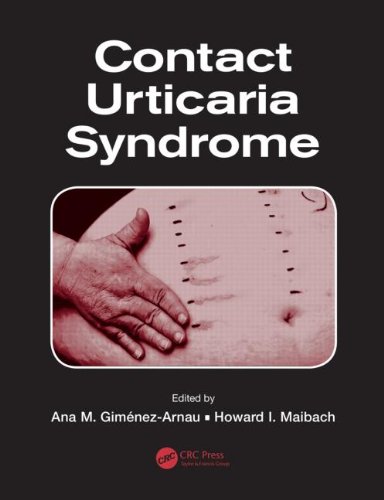

Most ebook files are in PDF format, so you can easily read them using various software such as Foxit Reader or directly on the Google Chrome browser.
Some ebook files are released by publishers in other formats such as .awz, .mobi, .epub, .fb2, etc. You may need to install specific software to read these formats on mobile/PC, such as Calibre.
Please read the tutorial at this link: https://ebookbell.com/faq
We offer FREE conversion to the popular formats you request; however, this may take some time. Therefore, right after payment, please email us, and we will try to provide the service as quickly as possible.
For some exceptional file formats or broken links (if any), please refrain from opening any disputes. Instead, email us first, and we will try to assist within a maximum of 6 hours.
EbookBell Team

0.0
0 reviewsContact urticaria syndrome was first defined in 1975 and since then scientific interest has steadily increased. New cases are continuously being reported furnishing information on novel clinical features. A large number of compounds could be responsible for triggering the syndrome including fragrances, cosmetics, latex, preservatives, flavorings, and disinfectants.
However, contact urticaria syndrome is often misdiagnosed in part due to a misinterpretation of its clinical manifestation and lack of knowledge of appropriate testing protocols and diagnostic programs. The latter have to be individualized for each patient based on the substance in question, medical history, possible concomitant disease, and clinical symptoms reported after exposure to the suspected culprit.
Contact Urticaria Syndrome explains various aspects of this syndrome. The book discusses its definition, history, epidemiology, and occupational relevance. It also provides a detailed discussion of various triggers including proteins, chemical compounds, agricultural chemicals, metals, plants, foods, and other substances.
The book describes known immunological and nonimmunological reactions along with diagnostic tools and test procedures. This comprehensive text is a helpful resource for dermatologists, toxicologists, immunologists, physicians, and other health care providers diagnosing and treating patients with contact urticaria syndrome. It summarizes clinical experience that makes it easier for providers to select the appropriate diagnostic tools and therapeutic approaches.